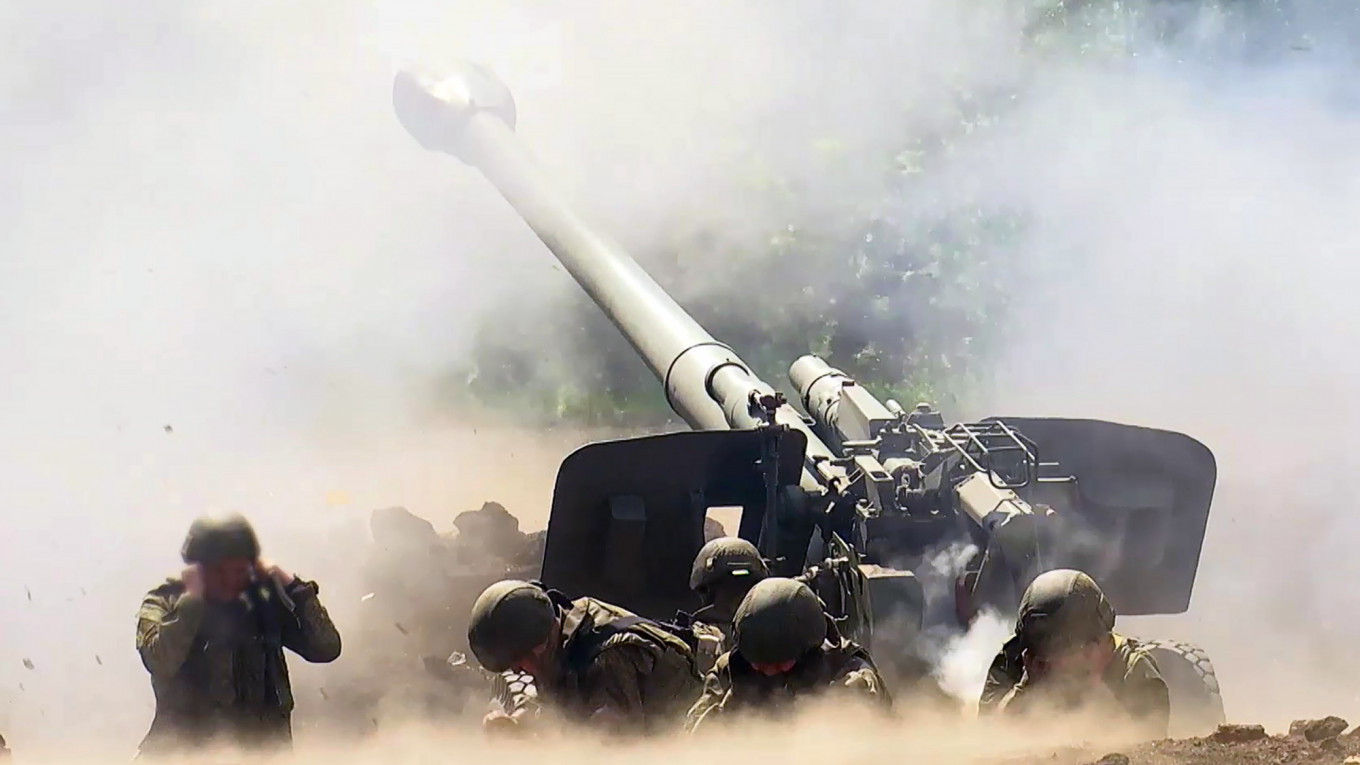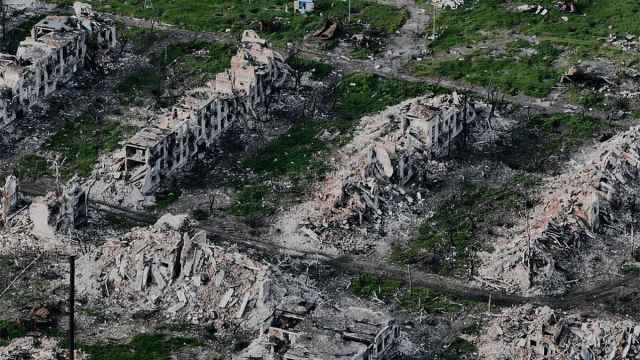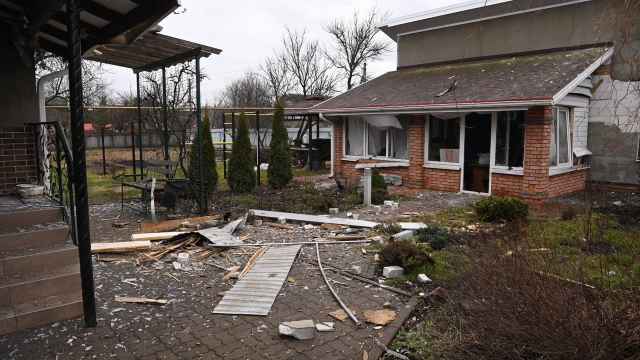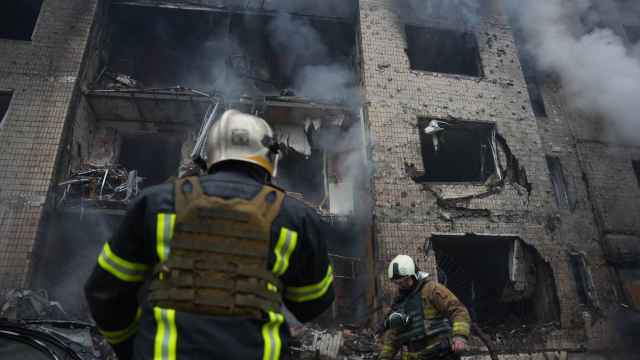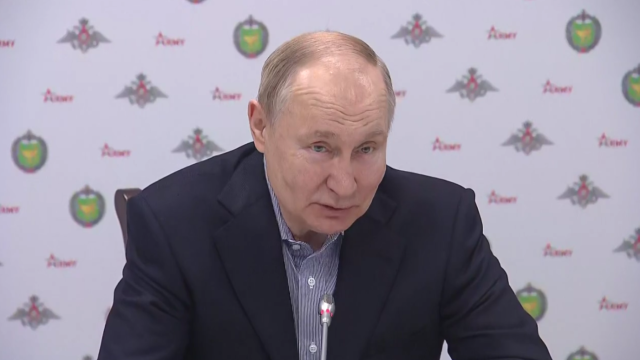Ukrainian President Volodymyr Zelensky blasted the West for lacking unity on Wednesday, as the Russian invasion entered its fourth month and Moscow's troops advanced in eastern Ukraine.
Fighting reached the edge of the industrial city of Severodonetsk, which is under fierce bombardment by Russian forces who are trying to encircle it in one of their key goals in Ukraine's Donbas region.
An unrepentant Moscow told the West to lift sanctions to stave off a global food crisis sparked by the war between two countries that together produce nearly a third of the world's wheat.
Zelensky renewed calls for heavy weapons from foreign partners, saying the billions of dollars' worth already put up were not enough to help Ukraine's outgunned forces.
"Unity is about weapons. My question is, is there this unity in practice? I can't see it. Our huge advantage over Russia would be when we are truly united," Zelensky said via videolink to an event on the sidelines of the World Economic Forum in Davos.
Zelensky said Ukraine was grateful for U.S. support, but urged Europe to step up, specifically naming neighboring Hungary which is blocking an EU-wide embargo on Russian oil.
The Ukrainian president said hours earlier in his daily address to the nation that Russian forces "want to destroy everything" in eastern Ukraine.
Western funds and weapons have helped Ukraine hold off its neighbor's advances in many areas, including the capital Kyiv.
Russia is now focused on expanding its gains in eastern Donbas, home to pro-Russian separatists, as well as the southern coast.
'Completely destroy'
The governor of the eastern region of Lugansk, Sergiy Gaiday, said fighting had reached the "outskirts" of Severodonetsk, which was being hammered by air strikes, rockets, artillery and mortars.
"Russian troops have advanced far enough that they can already fire mortars," Gaiday said in a statement on social media, adding that, "yesterday there was already fighting on the outskirts of the city."
"The Russian army has decided to completely destroy Severodonetsk. They are simply erasing Severodonetsk from the face of the earth," the governor said in a separate video on Telegram.
"I think that the next week will be decisive."
In the town of Soledar, Ukraine's salt manufacturing hub, the ground shook moments after Natalia Timofeyenko climbed out of her bunker to reassure herself that she was not alone.
"I go outside just to see people. I know that there is shelling out there but I go," the 47-year-old said after a thundering blast smashed apart a chunk of a mammoth salt mine where she worked with most of her friends and neighbors.
Ghostly frontline towns like Soledar are being hammered by Russian artillery as they sit along the crucial road that leads out of besieged Severodonetsk and its sister city Lysychansk.
Twelve people were killed by "extremely heavy shelling and attacks" in the neighboring region of Donetsk, which also forms part of Donbas, the Ukrainian presidency said.
In a sign that the rest of the country remains at risk, Russian cruise missiles struck the major southern rail hub of Zaporizhzhia, killing one person and damaging dozens of houses, the presidency added.
'Solving the food problem'
In Moscow, authorities made it clear Russia was settling in for a long conflict, with parliament scrapping the upper age limit for soldiers.
"We will continue the special military operation until all the objectives have been achieved," Defense Minister Sergei Shoigu said, using President Vladimir Putin's name for the war.
Tough sanctions imposed after Russia's Feb. 24 invasion of its pro-Western neighbor are causing food shortages around the world, Moscow added.
"Solving the food problem requires a comprehensive approach, including the removal of sanctions that have been imposed on Russian exports and financial transactions," said Russian deputy foreign minister, Andrey Rudenko.
He also demanded that Ukraine de-mine its ports.
The West argues it is Russia's offensive in Ukraine and blockade of Ukraine's ports that has pushed global food prices to an all-time high — sparking fears of worsening hunger, particularly in Africa.
With its unity questioned by Zelensky, EU chief Charles Michel said he was "confident" of an oil deal embargo before a Brussels summit on Monday despite Hungary's resistance.
NATO's unity has also been called into question with Turkey threatening to block Sweden and Finland from joining in the wake of the Ukraine invasion.
Swedish Prime Minister Magdalena Andersson said her country was "not sending money to terrorist organizations," rejecting Turkish claims over alleged support for Kurdish militant groups.
'It is just war'
A swathe of southern Ukraine meanwhile is living under Russian occupation.
President Vladimir Putin on Wednesday signed a decree simplifying a procedure to obtain a Russian passport for residents of the southern Ukrainian regions of Kherson, under the full control of Russian troops, and partly occupied Zaporizhzhia.
Residents expressed concerns about the future in Kherson. Moscow-backed officials are pushing for formal annexation by Russia.
"People are very apprehensive," trolleybus driver Alexander Loginov, 47, told AFP from the cabin of his vehicle, during a press trip organized by the Russian Defense Ministry.
Day-to-day life remains marked by uncertainty, especially over payment of salaries as "Ukrainian banks are closing."
"To be honest, it is just war," Loginov added.
And 200 bodies were found in the basement of a destroyed building of the port city of Mariupol, which fell to Moscow recently after a devastating siege, Ukrainian authorities said.
As the locals refused to collect and pack the heavily decomposed bodies, the Russian emergency workers just left the scene, Ukrainian ombudswoman Lyudmyla Denisova said on Telegram Wednesday.
"It is impossible to be within the area due to the corpse smell," she wrote. "The occupiers turned the entire Mariupol into a cemetery."
A Message from The Moscow Times:
Dear readers,
We are facing unprecedented challenges. Russia's Prosecutor General's Office has designated The Moscow Times as an "undesirable" organization, criminalizing our work and putting our staff at risk of prosecution. This follows our earlier unjust labeling as a "foreign agent."
These actions are direct attempts to silence independent journalism in Russia. The authorities claim our work "discredits the decisions of the Russian leadership." We see things differently: we strive to provide accurate, unbiased reporting on Russia.
We, the journalists of The Moscow Times, refuse to be silenced. But to continue our work, we need your help.
Your support, no matter how small, makes a world of difference. If you can, please support us monthly starting from just $2. It's quick to set up, and every contribution makes a significant impact.
By supporting The Moscow Times, you're defending open, independent journalism in the face of repression. Thank you for standing with us.
Remind me later.


